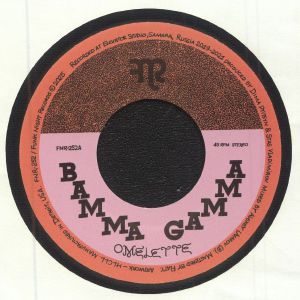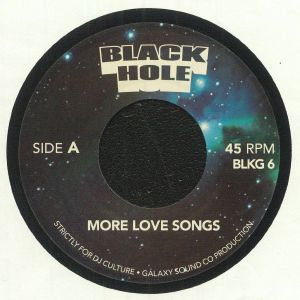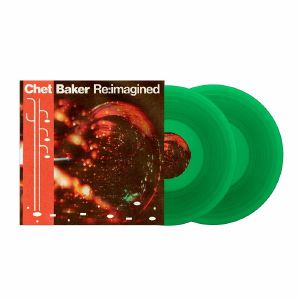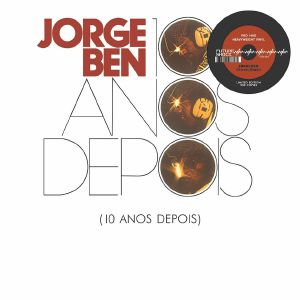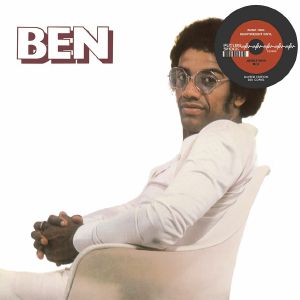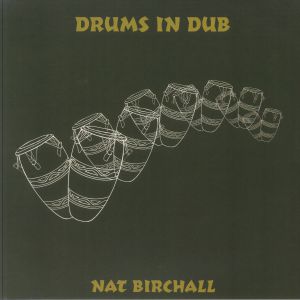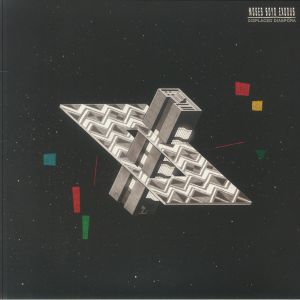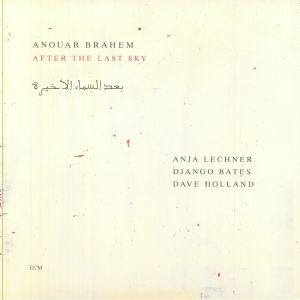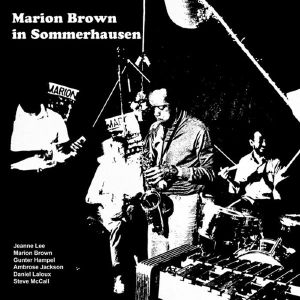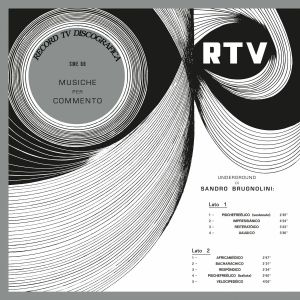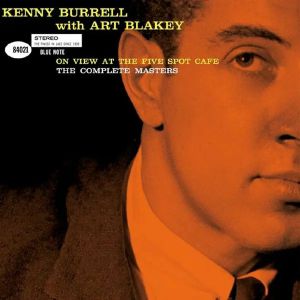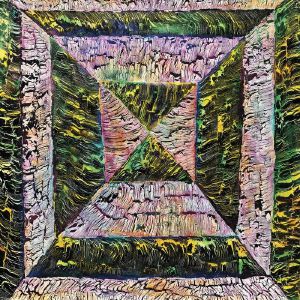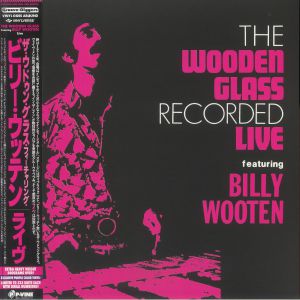Filter
在庫状況
Featured
リリースタイトル
値段
タグ
Back catalogue: Funk Soul & Jazz
Juno's full catalogue of Funk Soul & Jazz
シングル
Review: Bamma Gamma returns with a sizzling slab of funk in the form of 'Omelette' via Detroit's renowned Funk Night Records. This one is a digger's dream, raw, gritty instrumental funk with break-heavy drums, tight guitar licks and basslines so greasy they practically drip off the record. True to Funk Night's underground sound, Omelette is unapologetically retro and authentic and serves up irresistible dancefloor heat that feels like a lost '70s cut that has been newly rediscovered. For DJs looking to inject some analogue soul into their sets, it's a no-brainer.
… Read more in stock $16.07
Review: If you like your jazz mystical and spaced out then you're on the right page with this one. The Blackhole label returns with a sixth self-titled offering that is buy on sight. 'More Love Songs' has whimsical leads disappearing off into the cosmic ether over mic jazz-funk drums with some breezy vocals finishing it in style. 'Searching The Circle' then take off on another carefree and breezy groove with far-sighted melodies and gorgeous vocal harmonies that melt you to your core. Beautiful stuff.
… Read more in stock $12.96
アルバム
Chet BAKER / VARIOUS
Chet Baker Re:imagined (gatefold translucent green vinyl LP)
Cat: 754402 5. Rel: 15 May 25
Review: This staunch collection of songs compiled by Decca hears the very best works of jazz trumpeter Chet Baker "reimagined" by a varied selection of international talent, celebrating the legacy of one of American jazz's coolest ever piston-valvers. It's no surprise that Baker earned himself the name "Prince of Cool" as the concept of cool overtook the jazz world in the 50s and 60s; likewise, the artists chosen to reimagine Baker's many sweet treats here each epitomise that same offhand effortlessness which typified Baker's playstyle. Highlights include Dodie, who leads with a Latin percussive rekeying of 'Old Devil Moon', and mxmtoon, who brings equable guitar lurches to Baker's rather lost-his-cool confession of loving excitement, 'I Fell In Love Too Easily'.
… Read more in stock $30.42
Review: As you can probably work out from the title, this one is the tenth album from Brazil's samba king and genre game-changer Jorge Ben (it makes a change from him calling most of his albums 'Ben' to be honest.) It came first back in 1973 and features a collection of his then-most popular songs. All of them come from the first decade of his career but were all rerecorded as medleys. They bring with them sunny melodies and his signature stuffing grooves, acerbic and witty lyrics and easy to get lost in rhythms.
… Read more in stock $20.58
Review: Jorge Ben is one of the most influential Brazilian artists of his era. The so-called samba king brought all new rule-breaking style to the genre - both musically and lyrically - and fomented his own freeform acid-samba spin-off over the course of an impossibly high number of albums. One of the problems is that many of them were all given the same name, including this one, Ben. Fortunately which ever one you pick up there is joy to be had. Here there are plenty of psychedelic head twisters such as the opener 'Morre O Burro Fica O Homem' as well as deer, more soulful cuts like 'Fio Maravilha'.
… Read more in stock $21.41
Review: For those familiar with manchester sax player Birchall's previous forays into dub, this album offers a deep dive into the analogue 70s Jamaican dubbing techniques that have defined the genre, paying homage to the trailblazers like King Tubby and Errol Thompson. The source material is heavily percussive, resulting in a collection of dynamic, dubby drum workouts that seamlessly blend live drumming in the Count Ossie style with drum machines that recall Lee Perry's experimental approach. A highly anticipated dub companion to Nat Birchall's acclaimed Dimension of the Drums LP, this continues in a similar spirit of the previous. Drawing inspiration from classic dub albums like Keith Hudson's Pick A Dub and Winston Edwards' King Tubby Meets The Upsetter at the Grass Roots of Dub, Birchall reimagines the tracks with roots dub precision, incorporating fresh horn lines and hand drums to enhance the album's authentic, organic vibe. The LP includes two distinct mixes of a new rhythm track that wasn't part of the original album, adding an extra layer of excitement for listeners. Birchall once again handles all aspects of the albumiplaying instruments, recording, mixing and masteringiensuring a deeply personal touch in every track. All in total, eight tracks of instrumental dub bliss that transport you back to the golden era of reggae's most inventive sound.
… Read morePlayed by: Jane Fitz
in stock $34.94
Displaced Diaspora (reissue) (gatefold silver & black splatter vinyl LP)
Cat: X OLP002RTC. Rel: 27 Mar 25
Review: Moses Boyd is one of the driving faces behind the thrilling revelations in contemporary jazz in London in recent years. Back in 2015, he dropped Displaced Diaspora, a collection of music that was written during the same sessions that produced his hit Rye Lane Shuffle. The album features fellow pivotal nu-jazz peers in the British scene including Theon Cross, Nubya Garcia and Nathaniel Cross. It also showcases British soul vocalist Terri Walker at her best, saxophonist and Bata player Kevin Haynes with his Grupo Eleggua, and razor-sharp rapper Louis VI. Though jazz is the foundational sound, Yoruba chants, hip-hop and electronica are all mingled to make for a sonic stew that reflects the fresh and evolving sound of contemporary British music.
… Read more in stock $21.98
After The Last Sky (2xLP)
Cat: 753442 5. Rel: 25 Mar 25
Review: Solo Arabian nocturnes for oud return to haunt us on Tunisian-born musician Anouar Brahem's latest full-length project, backed by stellarly moving counterpoints for cello, piano and bass. Beginning with Arab traditional music as a start-point, Brahem has, over the course of his career, slowly verged into the domains of contemporary classical and jazz. Fusing tradition and modernity, his compositions have a chiffon feel, creaseless and impeccably recorded, yet they also stomach a certain chronicity and locale, indulging harmonic modes and inherited composition techniques.
… Read morePlayed by: Kaoru Inoue
in stock $31.01
In Sommerhausen (reissue) (LP (comes in random coloured vinyl, we cannot guarantee what you will receive))
Cat: 63677. Rel: 01 May 25
Review: In Sommerhausen is a historical live recording from the Bavarian State Conservatory of Music in Wuerzburg, Germany, made on May 17 back in 1969. It has the talented Gunter Hampel on vibraphone, bass clarinet and percussion and is a session that also highlights the work of alto saxophonist Marion Brown, an unsung hero of the jazz avant-garde. Brown's lyrical, improvisational style is evident all across these tunes, and he is backed expertly by Hampel's rich instrumentation. Both of the deeply expressive musicians speak from the soul here while tracks like 'Malipieros Midnight Theatre' are laden with found sounds and percussion that may remind of the great Don Cherry.
… Read more in stock $33.81
Underground (mono) (remastered) (limited LP in debossed sleeve)
Cat: SME 88. Rel: 07 May 25
Review: Originally recorded in Rome with top-tier players like Giorgio Carnini and Giovanni Tommaso, this psychedelic library session bridges modal jazz, Latin percussion, and fuzzed-out funk. This reissue restores the 1970 cut in full, swirling through ghostly organ grooves and spiralling rhythm sections with a clarity that feels startlingly fresh. 'Psichefreelico (Sostenuto)' and 'Bacharachico' glide between dreamy lounge and scorched delay-drenched oddness, while 'Africaneidico' pulses with loose Afro-Latin syncopation. Mined from Italy's golden age of library music and remastered from mono tapes, it's a masterclass in instrumental storytellingivivid, woozy and totally transportive.
… Read more in stock $34.39
Kenny BURRELL with ART BLAKEY
Cat: 759581 1. Rel: 24 Apr 25
Review: By the time Kenny Burrell took the stage at the Five Spot Cafe in August 1959, he had already 90-degree head-turned his best jazz fellow travellers with a glissando of Blue Note LPs. But this gig, his first live date as a leader, brought a new kind of magic. Contracting Art Blakey, Tina Brooks, Roland Hanna, Bobby Timmons, and Ben Tucker on band duties, Burrell confidently executed a suite of hard bop soaked in sweat, swing, and soul. This 3xLP brings that steamy summer evening back to life in full analogue detail; housed in a tip-on trifold jacket with an accompanying booklet of rare Francis Wolff photos, an essay by Syd Schwartz, and new reflections from Burrell himself, it's a vivid snapshot of a moment when everything clicked.
… Read morePlayed by: Juno Recommends Jazz
in stock $15.50
Edison Machado & Boa Nova (gatefold 2xLP)
Cat: FARO 249DLP. Rel: 31 Mar 25
Review: A long-lost gem from drum legend Edison Machado finally sees the light of day: Edison Machado & Boa Nova, recorded in New York in 1978 but never released, reflects the work of the master muso-mountaineer at his peak, fusing North and South American jazz rhythmic traditions with groundbreaking samba innovations. Machado, a pioneer of "samba no prato" (samba on cymbals), redefined Brazilian jazz alongside Jobim and Gilberto. Forced into exile under Brazil's dictatorship, he later found new creative energy in NYC, leading an ensemble of top-tier musicians. The result? A daring, dynamic, and electrifying session, controlled but untamed. Alongside original contributions from Dom Salvador, Guilherme Vergueiro and Aloisio Aguiar, this 80-minute lost masterpiece singes our ears with its carpal flair.
… Read morePlayed by: AfroBase (Radio Chart), Juno Recommends Jazz
in stock $33.25
Totality (LP in embossed-sleeve)
Cat: DC 860. Rel: 24 Apr 25
Review: A second joining of forces from two celebrated Chicago acts, blending deep, organic rhythms with a minimalistic electronic pulse. With the novel but logical addition of Jason Stein on bass clarinet, the collaboration stretches even further, pulling together the spiritual fluidity of Natural Information Society and the electronic minimalism of Bitchin Bajas. The first single, 'Clock no Clock,' is a deep dive into hypnotic rhythms, with guimbri grooves intertwining seamlessly with electronic bursts, flutes and organs. The other three tracks are equally compelling, the music unfolding like a living organism, constantly shifting but always grounded. Expansive, intricately woven sonic delights.
… Read morePlayed by: Juno Recommends Rock/Indie
in stock $32.68
The Wooden Glass Recorded Live (reissue) (limited numbered heavyweight purple vinyl LP + insert with obi-strip)
Cat: PVLP 1000. Rel: 27 Mar 25
Review: Often touted as a "masterpiece of jazz-funk live albums," The Wooden Glass's 1972 live recording proves it's more than just hype. Featuring vibraphonist Billy Wooten who previously played with Grant Green, this record was recorded at Indianapolis' The 19th Hole club and captures the essence of fusion driven by soulful 60s influences. Wooten's gentle melodies contrast with the gritty, distorted sound of Harold Cardwell's powerful drumming and Emmanuel Riggins' Hammond organ while the energetic performance from the band, including guitarist William Roach, creates a tapestry of intensity and dreamlike vibes. It's raw, electrifying, high-energy jazz.
… Read more in stock $59.19

 USD
USD





